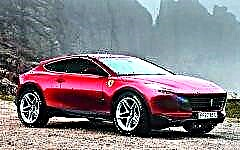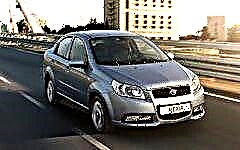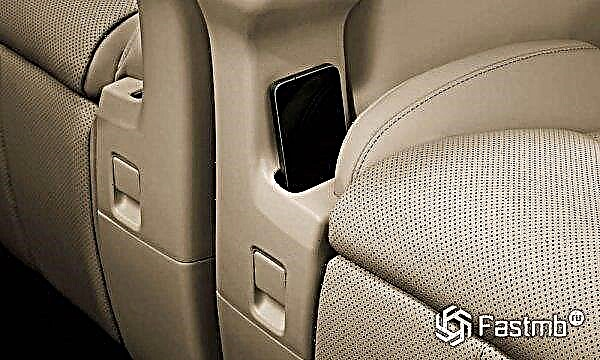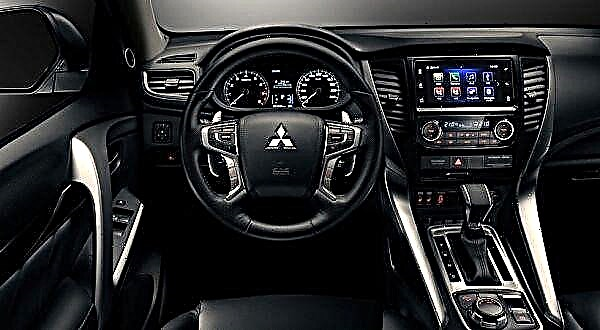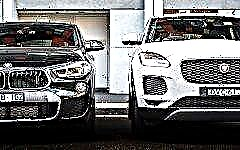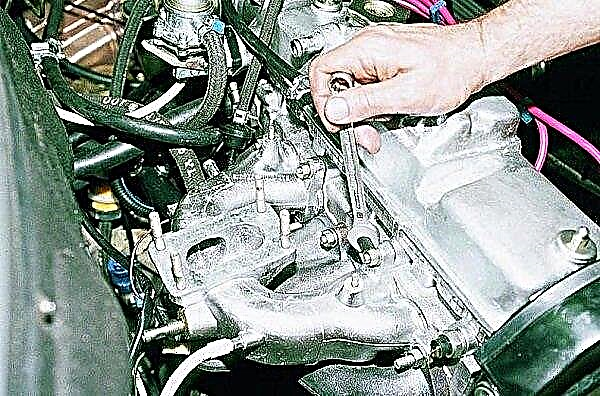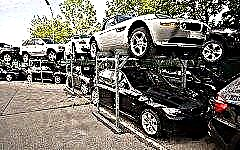

The content of the article:
- Diesel scandal
- The reaction of the automakers
- Europe and diesels
At first, the French authorities banned the entry of old diesel cars into the capital, and now Germany has followed their example, albeit in a more original way. Car concerns Volkswagen and Audi offer drivers a bonus of 3 to 10 thousand euros for purchasing a car with a new type of diesel engine.
The German Ministry of Transport does not want to act by restriction and deprivation, but plans to change the country's car fleet gradually, without inconvenience and outbreaks of protest from car owners. First of all, the conversation is about that transport, which has more than 10 years of operation and whose emissions into the atmosphere exceed all conceivable sizes.
Diesel scandal

The problem of diesel cars has been around for a long time and is quite acute, and the recent scandal has only fueled interest in the issue. In 2015, an American research team from the University of Virginia found that German cars were significantly exceeded. Investigations have confirmed that the software installed on Volkswagen vehicles, accidentally or intentionally, underestimated the same level of emissions during testing.
As a result of the scandal surrounding almost 11 million "fake" cars, the automobile giant lost part of its management team, its share prices fell along with sales, and together with the imposed fine, the losses amounted to about $ 19 billion.
In addition to damaging Volkswagen's image and what was considered to be environmentally friendly technology, public opinion about engines has radically changed. Previously, the main blow of the "green" defenders was taken by gasoline engines because of the emitted carbon dioxide, which spoils the global climate. "Dieselgate" led to a change in the vector of discussion - suspended particles (PM), produced by a diesel engine, were targeted. The only difference is that if the former harm the environment, the latter - directly to humans. The particles have the property of entering the lungs, settling there and causing prolonged coughing attacks, asthma, stroke and heart attack, and even cancer.
At the request of Greenpeace, the German Sociological Institute conducted a study according to which 66% of women and 55% of men strongly agree with the ban on old diesel engines.
Whether the results of the poll influenced or coincided the events, but soon Stuttgart announced a decision - from 2018, not to let diesel vehicles into the city if the concentration of PM particles exceeds the permitted standards. Only those cars that have the most modern Euro-6 engine that meet the strictest environmental standards will be allowed.
A special irony to the radical Stuttgart decision is given by the fact that this particular city can fully be called the automobile capital of the country. It is here that the headquarters and main factories of the most famous automakers - Daimler and Porsche are located, which, along with other concerns, still do not refuse to equip their models with diesel engines. Statistics for 2016 show that Daimler, out of the total volume of 42% of sales in Germany, and BMW, all 65% were cars with diesel engines of the outdated category.
The reaction of the automakers

It is not surprising that gradually the rest of the major cities of Germany begin to agree with Stuttgart, especially Berlin, Munich (which has the BMW headquarters on its territory), Cologne (with the Ford plant) and Dusseldorf.
The German car industry is very concerned about the "witch hunt" that has begun, considering the attacks on diesel engines too "sweeping". The association of the German automotive industry has provided calculations for PM and carbon dioxide emissions, which are increasingly decreasing with each new model. However, the market clearly demonstrates a leisurely but quite stable decline in demand for diesel cars, which is fueled by the German press, which comes out with the headlines "Sell diesels while it is still possible."
The head of the Daimler concern is sure that the diesel has a right to exist, since it is equipped with a very good design from a technological point of view. He strongly opposes the bans, stressing that diesel Mercedes still account for 50% of total European sales. But the company for some reason independently recalled 3 million diesel-equipped models. This includes:
- OM 607 series with a 1.5-liter engine developed in cooperation with Renault;
- OM 643 series with a 3-liter V6 engine;
- OM 651 series with engines 1.8 and 2.1.
The management explained their sudden actions by the fact that as part of strengthening consumer confidence, they decided to update the software. This action cost the concern 220 million euros, which would seem a trifle compared to Volkswagen's losses, if Daimler's environmental indicators were also found to be inconsistent.
Although the analysis of the past 2016 shows a drop in interest in diesel engines in Germany. In digital terms, the drop in demand is about 2% every month. Accordingly, prices for diesel cars have already dropped by 10-20%, which seriously frightens car dealers. If earlier there was a hope that the leap was due to the events in Stuttgart, then as a result of Volkswagen's statement, it becomes clear that the situation is developing in an unfavorable direction.
Europe and diesels

If quite recently Europe was literally obsessed with the active introduction of diesel engines, now, with no less zeal, they launched a campaign to eliminate them from the roads. The authorities of different countries have taken up this problem, initiating investigations with the largest automakers on the fact of the presence of hazardous emissions and misleading consumers. Now any software that calculates emissions has come under suspicion, and with it its owners: Mercedes, Fiat Chrysler, Renault-Nissan. By the way, Mercedes actually found calculations that did not correspond to the true indicators. The end of the check will show how this will turn out for the car monster.
Of course, manufacturers are sensitive to the events taking place. In addition to the cost of recalling models and falling sales due to the widespread return to gasoline engines or even hybrids, the hype is damaging the reputation. So, the shadow of suspicion of misinformation of car owners has already fallen even on Porsche, which immediately announced a complete rejection of diesel engines by 2020. Most likely, the management decided to simply save money. Given the emerging situation, it is costly and impractical to develop new-generation diesel engines, because they can be banned altogether. And the engines already available, with some modernization, will just work for another 2-3 years before the announced date.
By the way, Porsche has defied the fashion for diesel units the longest, equipping its Cayenne with them only in 2009. And even now the volume of diesel engines of the company is about 15%, which is a meager value compared to the same BMW and its 35%. This is probably why the management reacted so calmly to the commotion and agreed to abandon their diesel models.
Volvo gives its engines a little more time - until 2023. Now they are bringing their 2013 diesels to Euro 6 standards, but after 2019 they plan to equip their cars with hybrid or electric motors only. The head of the concern agrees that the constant tightening of environmental standards will lead to too high costs for the production of modernized engines. As a result, the development of such engines will turn out to be impractical, since the cost of the engine will increase, and with it, the entire car.Preliminary estimates show that the price of such models will be comparable to plug-in hybrids. And if you follow the trends in society, the future follows the latter.
The war with diesels is being waged all over the world: Paris, Athens, London, Mexico City, Madrid - many cities and countries intend to completely “exterminate” diesel cars in the next decade. Do they consider the economic component when making such decisions?
Indeed, at the moment, 50% of diesel vehicles from the total number of vehicles run across Europe. In Germany, they account for 45% of sales, and more than 50,000 jobs are given to diesel employees.
Although diesels are not giving up their positions so far - the developers are upgrading the available engines, but how long will they last? Pandora's box has already been opened, and maybe the German newspapers are right, the soap-diesel bubble will burst soon. Maybe we should really take advantage of Volkswagen's offer and get rid of our diesels while it's still possible?

